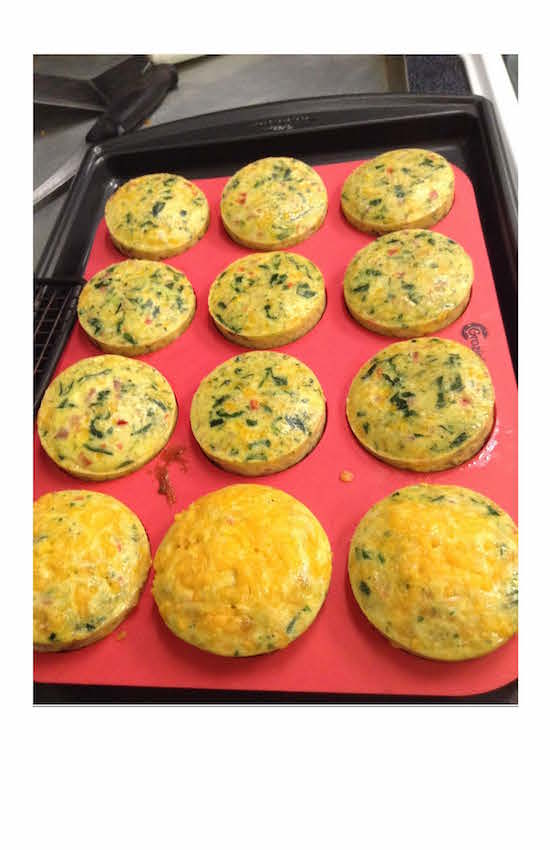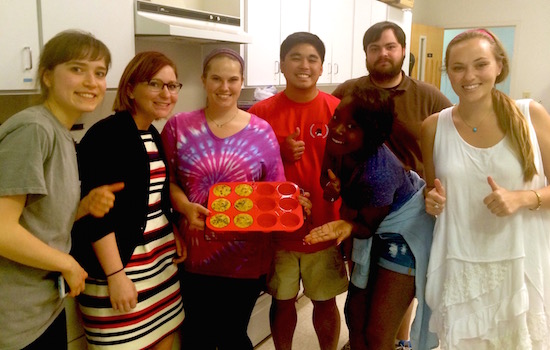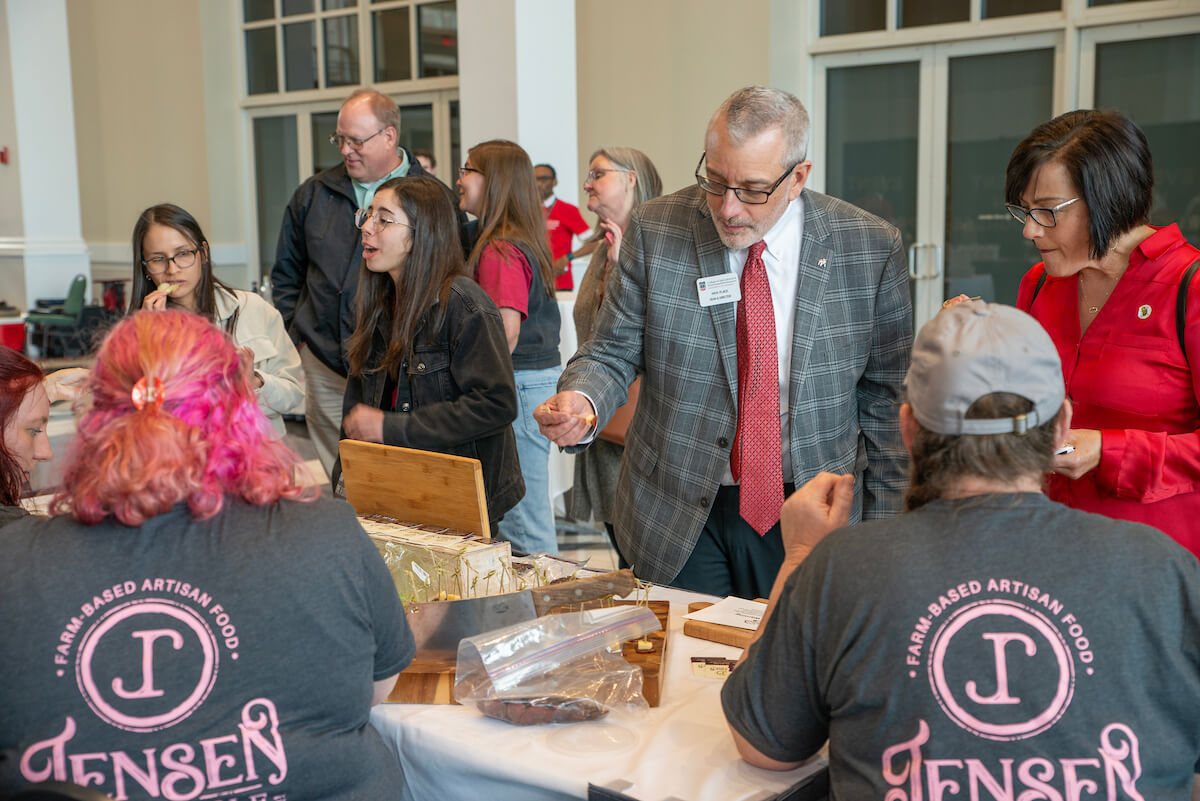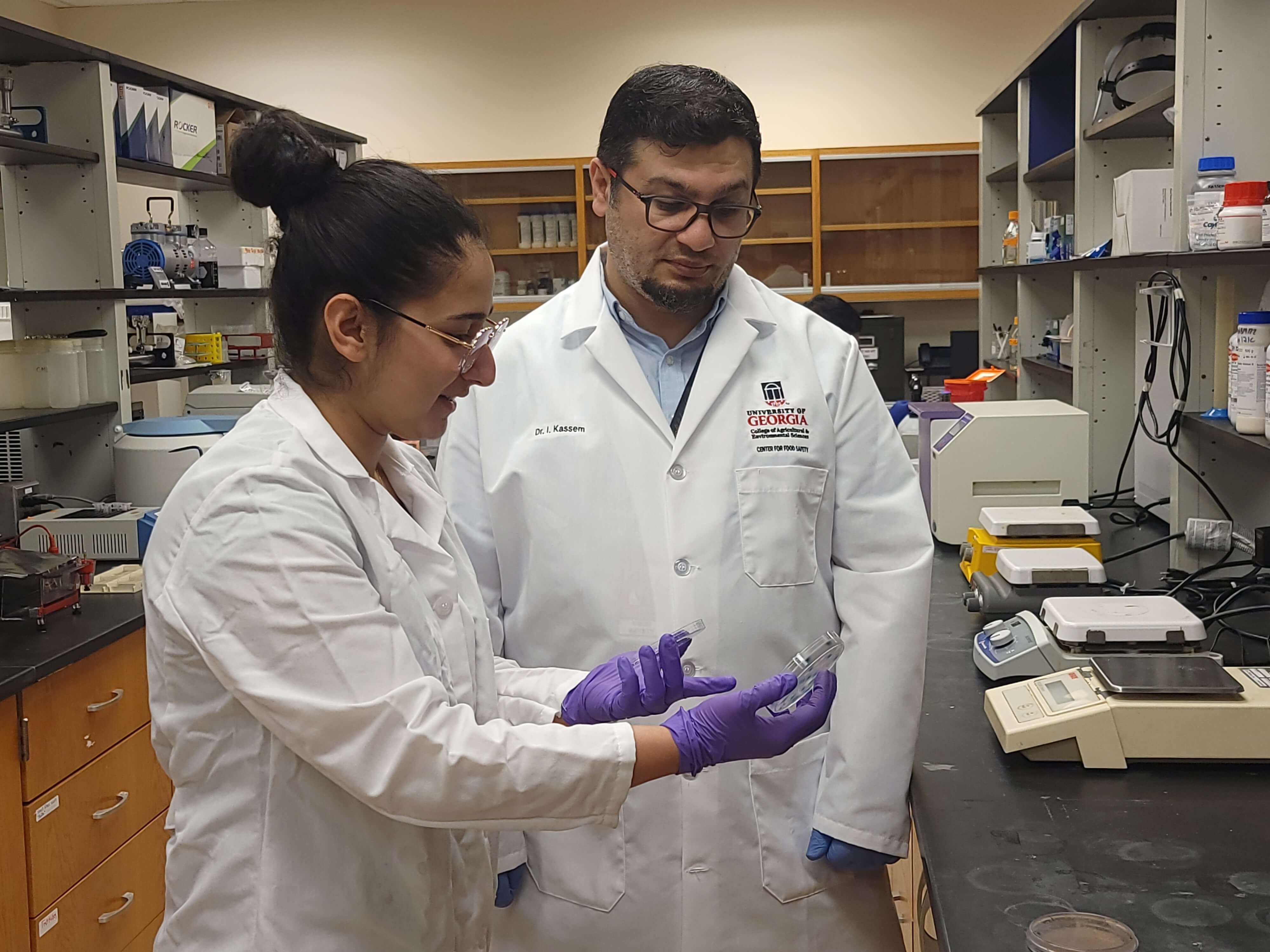University of Georgia food science students have created a bread-free, microwavable breakfast sandwich that, if marketed, would fill a need for consumers on low-carbohydrate or gluten-free diets.
Made from quinoa, ham and eggs, the product is high in protein and “somewhat similar” to quiche, said Yao-wen Huang, a food science professor in the UGA College of Agricultural and Environmental Sciences. A team of seven students in his “New Food Product Development” class created the Southwestern Breakfast Egg Muffin and won first place in a competition sponsored by DuPont.
The company required the new food products contain at least two DuPont-produced ingredients. The prototype muffin contains eggs, red bell peppers, white onions, Kroger frozen spinach, Kroger quinoa, Smithfield diced ham, Kroger shredded sharp cheddar cheese, whole milk, salt, Lawry’s garlic powder, Kroger ground black pepper and Kroger ground red pepper.
“It’s a new alternative to breakfast that is high in protein, packed with vegetables and whole grains and is the perfect, good-for-you breakfast that is quick to heat and simple to eat for consumers on the run,” said Meredith Meyer, leader of the winning UGA student team.
Meyer said the breakfast muffin can be heated in a microwave or toaster oven and has a long shelf life — about four to six months in the freezer. Based on the students’ research, the muffin could be sold in packages of six in the grocer’s freezer for $3.87.
“It does not have a crust, which eliminates a lot of carbohydrates. Without the bread, everyone can consume this product, even consumers who suffer from celiac disease,” Meyer said. “The incorporation of a unique grain, like quinoa, into a breakfast item is also very uncommon.”
Several versions of the muffin were created before the students settled on the final recipe. Early recipes included brown rice, then bulgur wheat.
“At first we looked at creating meat patties with a fibrous addition that was also low in fat,” said Meyer, who graduated from UGA in May with a food science degree and now works for PepsiCo Inc. in Riviera Beach, Florida. “We knew we wanted to make something with quinoa because it’s a big trend now.”
Other student-created products in the class included raw, egg-less cookie dough, a quinoa-based waffle mix and bagel chips with dip. Products created by students in the class do not always make it to supermarket shelves, but some do.
“Twelve years ago, a team of students in my class created a product called ‘cherry salsa.’ They won first prize from the Cherry Marketing Institute and the food company produced fruit salsa using our students’ product concept,” Huang said.
Regardless of whether the products make it to the marketplace, Huang said the students learn to develop a new food product “step by step, from market opportunity analysis to ideation, concept formation, building a business case, prototyping, development, marketing, to the final step — product launch. Product development is the longest working period; the product is refined, the nutrition label is created, safety and shelf life is considered, sensory analysis is performed and a package is created.”
Many of the UGA alumni of Huang’s class are now employed in research and development and other positions in the food industry across the world, he said.
In addition to teaching this and other UGA food sciences courses, Huang is certified by the Product Development and Management Association as a new product development professional.
“During my earlier career, I developed several new food products, including the famous peanut chips, sweet potato pasta and edible cannonball jellyfish," Huang said.
His technique to convert cannonball jellyfish into a high-valued, edible product helped establish jellyfish as an American export product. Georgia fishermen nicknamed Huang the “Cannonball King” in the early ‘80s. The product is now manufactured in Florida, Georgia and South Carolina.
Past products developed by Huang’s UGA students have won awards from the Institute of Food Technologists (two awards), the Product Development Management Association Georgia Chapter (six awards), Cherry Marketing Institute (five awards), Minorities in Agriculture, Natural Resources and Related Sciences annual conference (two awards), U.S. Rice Council (one award), Almond Board of California (one award) and the DuPont Knowledge Award (two awards).
In addition to Meyer, the award-winning student team includes Juliana Fritts, Adam Gresham, Brooke Oot, Shemaine Mensah, Sara Muntean and Faustine Sonon.
“I am so proud of them. They worked hard and put extra effort into this course, and my sixth sense told me they had a good chance of winning,” Huang said. “Although class team products have won numerous awards in this past, this is the largest and the best one.”
The team will receive the award and $10,000 to share at the Prepared Foods 33rd annual New Product Conference, set for Sept. 27-30 in Palm Springs, Florida.









